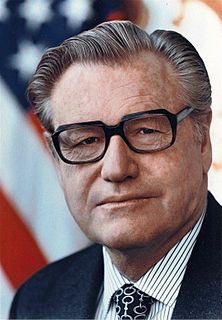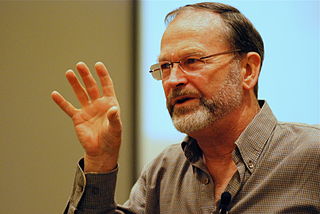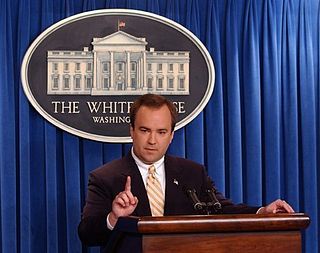A Quote by Nelson Rockefeller
There is no doubt that many expensive national projects may add to our prestige or serve science. But none of them must take precedence over human needs. As long as Congress does not revise its priorities, our crisis is not just material, it is a crisis of the spirit.
Related Quotes
As adults, if our top priorities are constantly directed toward the acquisition of more and better worldly goods, it will not take long to increase our love in those directions. The purchase of a larger house or a nicer car or a more expensive boat may cause us to sacrifice our resources and develop an unwise love for these symbols of success and pleasure. We learn to love that which we serve, and we serve that which we love.
In Cuba, what we do not accept is the comparison of our participatory democracy with bourgeois democracy which has not solved anything for humanity. The only thing it has done is to take humanity towards a precarious point. They have created the environmental crisis, the food crisis, the water crisis and the pandemics all over the world. The reason for that is because they have taken the majority of the resources and given it to militarism paid for by the western powers because it is a great business for them; this is the real truth.
Nowhere does it say that investors should strive to make every last dollar of potential profit; consideration of risk must never take a backseat to return. Conservative positioning entering a crisis is crucial: it enables one to maintain long-term oriented, clear thinking, and to focus on new opportunities while others are distracted or even forced to sell. Portfolio hedges must be in place before a crisis hits. One cannot reliably or affordably increase or replace hedges that are rolling off during a financial crisis.
Both our present science and our present technology are so tinctured with orthodox Christian arrogance toward nature that no solution for our ecologic crisis can be expected from them alone. Since the roots of our trouble are so largely religious, the remedy must also be essentially religious, whether we call it that or not. We must rethink and refeel our nature and destiny.
Sometimes we need a personal crisis to reinforce in our minds what we really value and cherish. The scriptures are filled with examples of people facing crises before learning how to better serve God and others. Perhaps if you, too, search your hearts and courageously assess the priorities in your life, you may discover, as I did, that you need a better balance among your priorities.
We continue to go from crisis to crisis, whether it is electricity or whether it is gas prices. We need comprehensive solutions, not patchwork crisis management. We wouldn't be in this situation today if Senate Democrats weren't holding up the national energy plan that the president proposed back in May of 2001.
We must seek support in the moral values that have ensured the progress of our civilization. Honesty and hard work, responsibility and faith in our strength are bound to bring us success. There should be no place for despondency. The crisis can and must be fought by uniting our intellectual, spiritual and material resources.

































